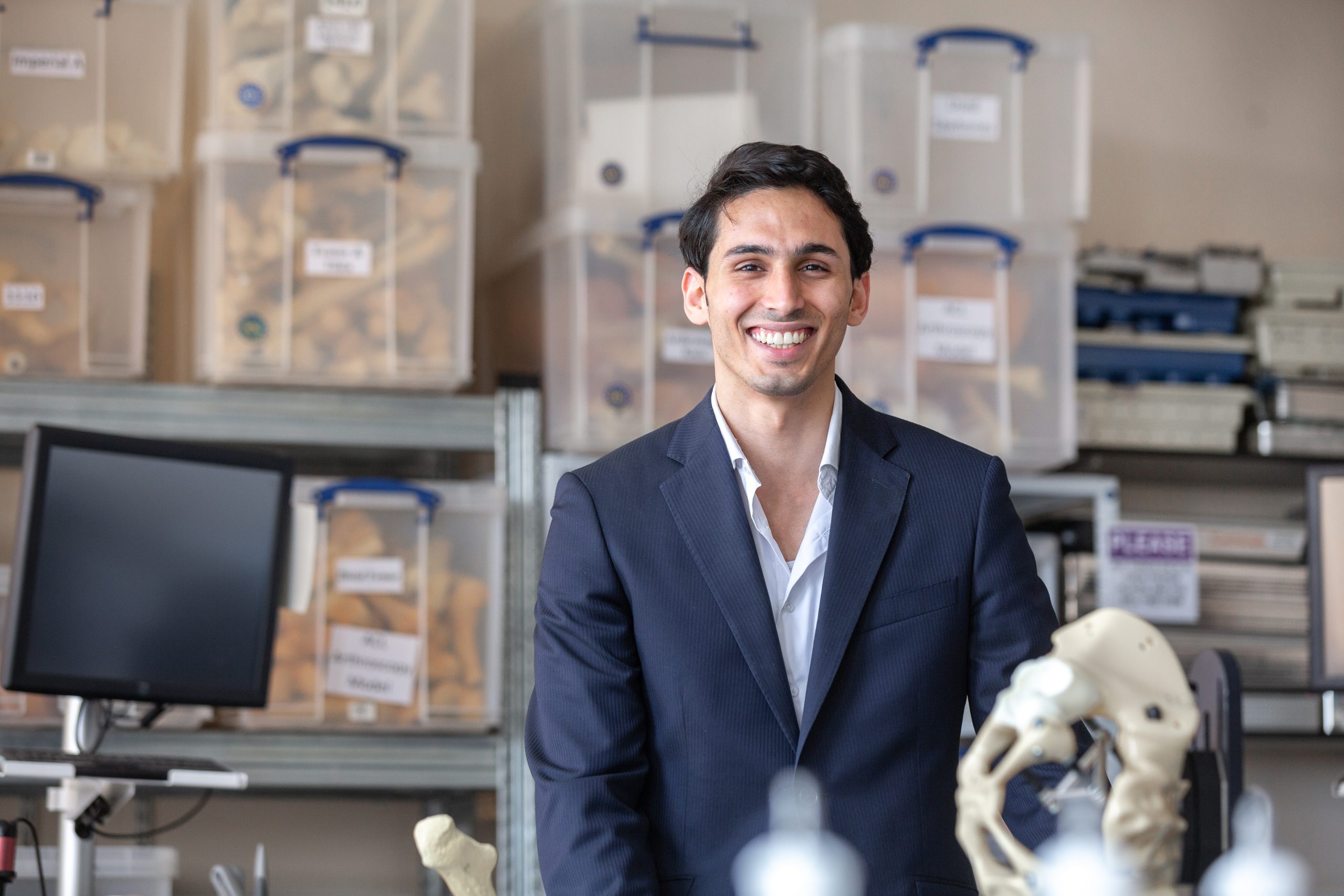
Dr Hadi Alagha from the Department of Surgery and Cancer shares his inspiring journey of becoming an orthopaedic surgeon. Learn about his remarkable path from Aleppo to Imperial College London and the hurdles he encountered along the way.
My path has been anything but ordinary, shaped by a deep desire to make a difference.
My story starts in Syria, a home that I have not returned to since I left in 2012. At that time, I had successfully completed three years of undergraduate medicine at the University of Aleppo. Like many others, due to the war I had to leave behind my family, friends and memories. This experience ignited a fire in me to pursue my dream of becoming an academic orthopaedic surgeon.
After some searching, I found my way to the University of Debrecen in Hungary, where I joined as a third-year medical student. It was here that I discovered my passion for scientific research, leading me to complete a Master’s in Sports and Exercise Medicine at the University of Nottingham with distinction in 2016. By the time I graduated from medical school in 2018 summa cum laude, I ranked second among my peers, a proud moment that set the stage for my future.
Transforming hip replacement outcomes with machine learning
I chose to pursue my PhD at Imperial under the supervision of Professor Justin Cobb because of his pioneering work in introducing innovative technologies to the field of arthroplasty – surgery to restore the function of a joint. I hold Professor Cobb in high esteem as both a valued confidant and mentor, whose insights and support have greatly enriched my academic journey. I joined the PhD programme in Clinical Medicine Research at the MSK Lab in October 2018, and my journey was a thrilling ride. My doctoral thesis, titled “Predictive factors and outcomes in primary hip arthroplasty,” focused on developing and validating machine learning (ML) models to predict patient outcomes after hip replacement surgery.
Clinical practice and implant selection for hip disease requiring replacement often exhibit significant variability, making it difficult to predict outcomes. Differences among patients, surgeons, and units can obscure the effectiveness of certain approaches. Machine learning provides a powerful complement to traditional statistical methods, such as multivariate regression models, by handling large numbers of predictor variables and their complex interactions. This allows for more accurate forecasting of clinical outcomes.
My study is the largest to use machine learning for predicting safety and failure outcomes in primary hip replacement surgery, based on registry data. The findings demonstrated that machine learning techniques had a slightly superior predictive ability compared to logistic regression models (statistical model that predicts the probability of two possible outcomes e.g. yes/no, success/failure). By using these advanced techniques, we can discover complex patterns and insights that conventional methods may overlook, helping improve decision-making in hip replacements.
Safer joint replacement solutions
Building on these findings, I collaborated with Professor Jonathan Jeffers on two follow-up biomechanical studies to identify the optimal surgical technique for seating cementless femoral stems. This process involves properly positioning and securing a femoral stem (the part of a hip prosthesis that fits into the femur, or thigh bone) without the use of bone cement. Our goal was to minimise the risk of periprosthetic fractures (fractures associated with an orthopaedic implant) while ensuring strong bone-stem fixation (the method used to anchor an implant e.g. proesthetic joint, into the bone).
In addition to my work at Imperial, I sought further expertise in machine learning by taking numerous courses and attending specialised training at Harvard Medical School and the London School of Economics (LSE). I later joined LSE as a visiting senior fellow in the Data Science Institute, collaborating with Dr Kostas Kalogeropoulos and leading teams from Imperial, the Swedish Arthroplasty Register, MIT, and Harvard.
Currently, I co-lead an international collaborative project alongside Professor Justin Cobb, working with the London School of Economics and the Swedish Hip Joint Registry. Our aim is to enhance safety and quality in joint replacement surgeries by more accurately predicting adverse outcomes.
Bridging research, practice and education
During my PhD, I took a gap year to sharpen my clinical skills as a junior clinical fellow in Trauma and Orthopaedics at Chelsea and Westminster Hospital. This experience helped me connect research with real-world practice. Now, I’m currently a registrar at Frimley NHS Foundation Trust, continuing my journey through the NIHR Academic Clinical Fellowship in Trauma and Orthopaedic Surgery.
Alongside my clinical work, I’ve also been lucky to teach. I earned senior fellow status with the Higher Education Academy in the UK and have worked as a senior teaching fellow teaching across three MSc programmes in patient safety, health policy and digital health leadership.
Reflections and advice
Looking back, I realise that life is full of unexpected twists and turns. I’m incredibly grateful to have been at Imperial, where innovation and collaboration thrive.
My advice for anyone on a similar path? Do your homework, believe in yourself, and embrace challenges with a positive attitude. Don’t hesitate to seek support and guidance from mentors—remember, they’re often the ones paving the way for us.
As I continue my journey, I hope to inspire the next generation of medical professionals, just as my mentors inspired me. Here’s to pursuing our dreams, no matter the hurdles we face!